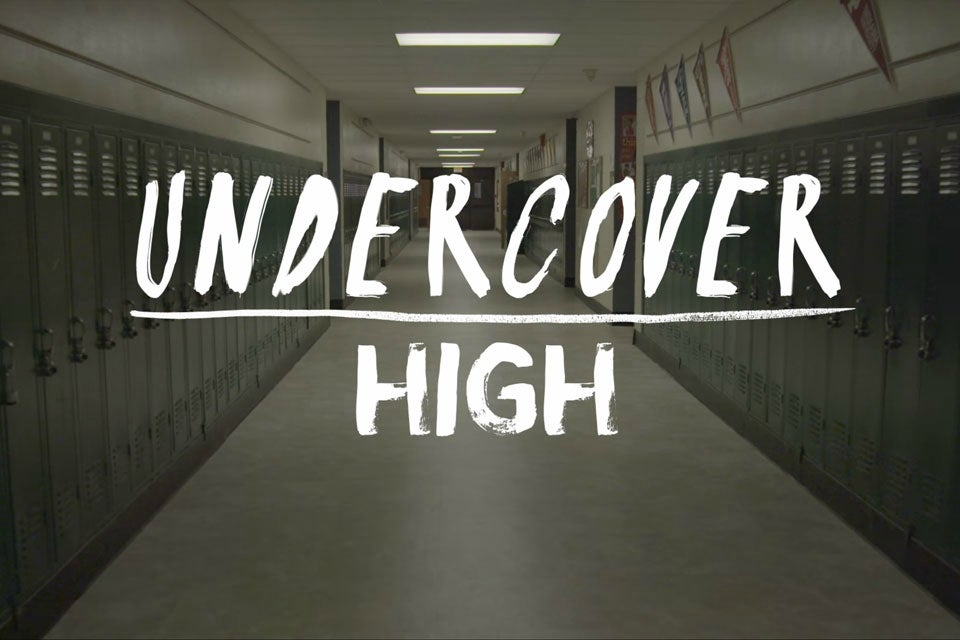
Would you go back to high school and relive the experience? That’s the question posed to seven adult volunteers chosen to go back to high school, blend in, and report back on what it’s like to be a high school teenager today.
In the groundbreaking new reality show, Undercover High, adults who have already survived high school agree to return to help the administration better understand the needs of the students. The experiment takes place at Highland Park High School in Topeka, KS.
Dr. Beryl A. New, an African-American educator whose career expands over twenty-five years, is at the helm of Highland Park. Along with Topeka Public Schools superintendent Dr. Tiffany Anderson, Dr. New’s hope is to learn more about the real experiences of her students—namely the things administration may not be exposed to or that are only shared peer-to-peer—so that she and her team can provide better support for the students.
I recently spoke with Dr. New about the show and her sense of how school is different for youth today, particularly for African-American girls who face unique obstacles while obtaining an education. Dr. New, who calls her career as an educator a “spiritual” calling, believes the show will promote “positive starting points for conversations in our home and communities and hopefully in our nation.” When only 66% of African-American girls graduate high school and with these girls being seven times more likely to be suspended from school than white girls, we have no choice but to seek innovative ways to engage in family and community conversations about their high school experiences.
Highland Park isn’t without its own problems and, as Dr. New noted in our conversation, these issues are not all that different coast-to-coast. A few of the teachers interviewed reflect on how many of the students are dealing with tremendous personal and community impediments.
“Kids give up on school and on themselves,” Dr. New shares in the first episode when she speaks on the reasons why students drop out and how she and her team continue to work hard to engage students in their education. One of the biggest changes in the educational experience, she notes, is the widespread use of social media.
“Social media, which can be a plus [because] it brings our world a lot closer, allows people an element of anonymity where they can hide behind text screens which causes problems at a school,” she said. “I see a lot more opportunities for all students, who may have been disenfranchised in the past. It appears that because of social media an internet they are finding out about opportunities that they can be successful.”
In the opening episode, one of the female volunteers immediately finds herself at the center of a social media-based rumor mill and is taken aback by how much the students use it during school and how they harass each other. Nationally, 37% of high school girls report experiencing some form of sexual harassment in school (and 56% of all school-aged girls). Students are using platforms like Facebook and Instagram to do more than build friendships and look at pictures. In fact, 42% of students who report being bullied online report Instagram being the biggest platform for harassment. Dr. New noted that parents and educators can’t act like it’s an issue that only happens after school.
“We have to partner with parents and girls. We have to step up to the plate and educate about this issue,” she said.
As I watched the show, I found myself caught a bit off-guard, having graduated high school twenty years ago and feeling completely disconnected from what I was seeing. When I asked Dr. New how she felt watching some of the more explicit footage, she said “I felt like I’d been punched. The cruelty that occurs through social media was very disappointing… habits, language, those things that I don’t see because they see me as the building leader.”
When I think back on when I was in high school, we didn’t have the Internet or social media or even cell phones. We spent more time interacting in person and we weren’t distracted by technology in our classrooms. Things have changed, drastically, and for veteran educators, the challenges of teaching a new generation are plenty. As a mother, I worry about my own son and how he and his friends seem so deeply connected to their devices. I worry about whether or not he’ll succumb to peer pressure or if he’ll end up being a bully or on the receiving end of a bully’s bad intentions. Parents will certainly find the revelations startling and educators will commiserate with their peers’ experiences.
Underground High is a welcomed opportunity to gather your family together and have very real conversations about your children’s personal choices and school experiences. Undercover High premiers October 10, 2017 at 10p.m. EST on A&E Network.